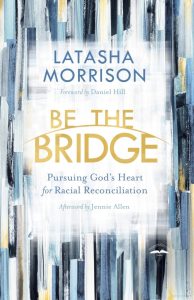 This month, in celebration of Dr. Martin Luther King Jr. Day and Building the Beloved Community, we’re reading Be the Bridge: Pursuing God’s Heart for Racial Reconciliation by Latasha Morrison.
This month, in celebration of Dr. Martin Luther King Jr. Day and Building the Beloved Community, we’re reading Be the Bridge: Pursuing God’s Heart for Racial Reconciliation by Latasha Morrison.
Here at Pikes Peak Habitat, we build physical homes and metaphorical bridges! Our Christian faith calls us to radical inclusion, and we live out that commitment as one of 10 Habitat affiliates to participate in the White House’s Team Up bridgebuilding pilot program.
But we also recognize that we have more work to do in building bridges across lines of racial difference, especially in light of historic inequities (PDF) impacting homeownership and generational wealth. Morrison’s book calls us to live out our faith and work for reconciliation. Join us in reflecting on her ideas!
Discussion Questions
Opening Pages
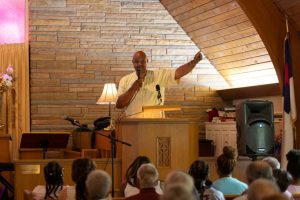
On the first page of the Foreword, she says Jesus “commissioned his church to be the healing agent that brings the ministry of reconciliation into broken and fractured places in society.” Why is reconciliation important to you, personally and spiritually? What does reconciliation look like in your life?
Why is knowing history so important for reconciliation?
Why does she say the church isn’t a “credible witness for racial reconciliation” (p. 5)? How does that statement align with your experiences?
Morrison says a posture of humility is crucial for this work. What does that look like for you?
The Bridge to Lament
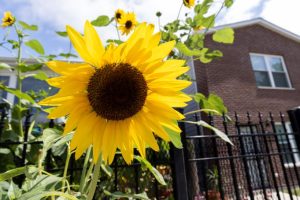
Did you learn anything about American history in this chapter? If so, what? Why do you think this wasn’t taught in the schools you attended?
Morrison says, “The truth is that it takes every tribe, tongue, and nation to reflect the image of God in His fullness” (p. 22). Respond to this statement. Are there aspects of God that you see more clearly displayed in cultures and ethnicities other than your own? If so, what are they?
Why is understanding the truth so important? Why is empathy crucial?
What is lamentation? What is the role of lament in working toward reconciliation?
The Bridge to Confession and Forgiveness
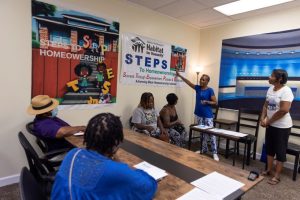
Why do so many of us feel shame and guilt? How might that look different for people of different races? How do these emotions hinder reconciliation?
What is the Whitney Plantation, and why does it serve as such a powerful example?
Why is confession crucial to healing?
What role does forgiveness play in reconciliation? Why should we forgive people who don’t express remorse for their actions?
How does the example of Mother Emanuel show the power of forgiveness?
The Bridge to Restorative Reconciliation
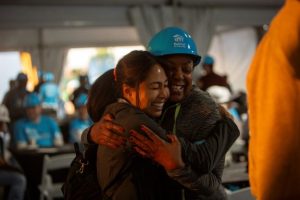
What might repentance look like for you, depending on your own racial heritage and experiences?
Why do you think the American government and many churches have never apologized for the racism they perpetrated (see p. 142)? What do you think would be the impact if they did?
What does reparation mean? Why are reparations part of working toward equality?
How can you contribute to the process of reparations? What does this mean to you? How do your race and personal experiences impact the way you view reparations?
What might reconciliation and restoration look like in your life? What steps can you take to encourage these processes?
How can you share what you have learned (reproduction)?
Final Thoughts
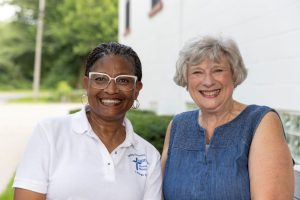
Were there any discussion questions that particularly resonated with you? What were they, and why did they impact you?
Did you find any of the liturgies particularly meaningful? Which one, and why?
Where are you in the process that Morrison outlines?
What is one concrete step you will take to work toward racial reconciliation?
Next Month…
In February, we’ll read Evicted: Poverty and Profit in the American City by Matthew Desmond. This Pulitzer Prize-winning work chronicles the struggles of eight families and individuals living in low-cost apartments and run-down trailers in Milwaukee. Join us to discuss this book!

